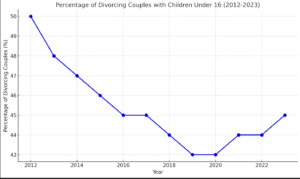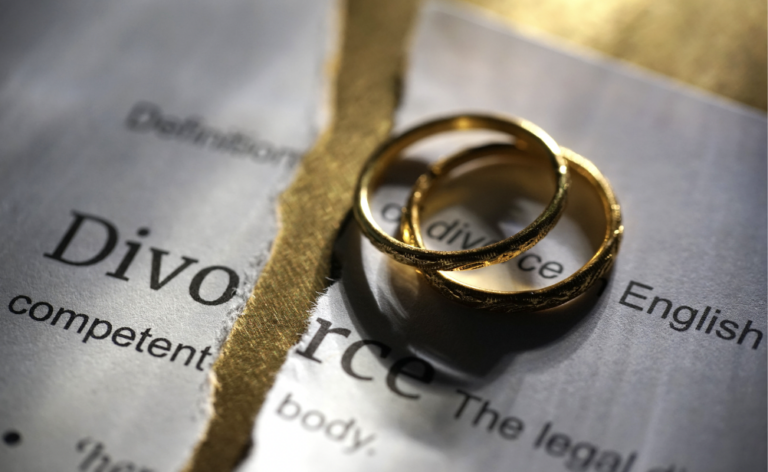What is a short marriage?
A short marriage is typically considered to be one of five years or less. The principle of equally sharing finances to achieve overall fairness between the two parties is usually applied to such short marriages where there are no dependent children; however, a straightforward 50/50 split may not necessarily be applied as the needs of each spouse, their earning capacity and financial contribution to the marriage will be taken into account.
Does having a short marriage make a difference to the financial settlement?
When a marriage is dissolved, one of the principle deciding factors in determining a divorce settlement is the length of the marriage; this can include any pre-marital cohabitation.
However, the duration of the marriage is only one factor considered in the settlement, and the overall circumstances are relevant; the needs of both spouses are also a factor for consideration. A short marriage divorce is typically swift and clear-cut, with the “more or less equal division of assets” principle as set out in White v White [2000] applied in the vast majority of short marriages.
A short marriage divorce allows the couple to achieve a clean break financial settlement. There are a number of reasons why this is pertinent to a shorter marriage (usually one that has lasted less than five years). For example:
- there are no children to consider
- there may be less in the way of joint property and assets to dispose of
- any sacrifices made for the marriage are usually minimal and are unlikely to have lasting repercussions
Having a ‘clean break’ settlement set out in a consent order is ideal for short marriages. It allows a couple to divorce swiftly and easily so they can move on with their lives. There will be no need for future re-negotiations and no remaining financial obligations for either party. A clean break consent order will protect both spouses from any future financial claims.
Simply.Law member divorce lawyers are adept at examining all circumstances and can advise you on where you stand legally, what a fair settlement is likely to be in your particular situation and what your options are for moving forwards to achieve an amicable financial agreement. They can also advise you on what grounds would be relevant for you to use in the divorce petition; or, if you are likely to be the respondent, how to respond to your spouse’s divorce petition.
We can also put you in contact instantly with a solicitor for whom family law is their chosen field of practice – this means they will be experienced and proficient at handling your type of case.
What happens if there are children involved?
If there are no children from the marriage then, generally speaking, each party can expect to leave with whatever they personally contributed. However, if there are children then the priority of the Family Court will always be the welfare and housing of the children. In these circumstances, consideration is given not only to the duration of the relationship but all matters in Section 25 of the Matrimonial Causes Act 1973, which are seen as equally important:
a) the income, earning capacity, property and other financial resources which each of the parties to the marriage has or is likely to have in the foreseeable future, including in the case of earning capacity any increase in that capacity which it would in the opinion of the court be reasonable to expect a party to the marriage to take steps to acquire;
(b) the financial needs, obligations and responsibilities which each of the parties to the marriage has or is likely to have in the foreseeable future;
(c) the standard of living enjoyed by the family before the breakdown of the marriage;
(d) the age of each party to the marriage and the duration of the marriage;
(e) any physical or mental disability of either of the parties to the marriage;
(f) the contributions which each of the parties has made or is likely in the foreseeable future to make to the welfare of the family, including any contribution by looking after the home or caring for the family;
(g) the conduct of each of the parties, if that conduct is such that it would in the opinion of the court be inequitable to disregard it;
(h) in the case of proceedings for divorce or nullity of marriage, the value to each of the parties to the marriage of any benefit which, by reason of the dissolution or annulment of the marriage, that party will lose the chance of acquiring.

How is property divided?
Short marriage divorce sees an increased focus on the division of any marital property and far less focus on maintenance and financial orders. That said, the courts would take recognition of any sacrifices made for the marriage. For example, selling personal property or leaving an established career. Due regard may also be given if one spouse brought significantly more assets or money into the marriage and contributed more money to the purchase of a property. Normally assets acquired prior to the marriage will be retained, or returned to the spouse who originally had them, and assets accrued during the marriage will be divided more or less equally when the parties divorce.

Fixed price divorce services
The right divorce lawyer at the right price
Click here to find out more about our fixed price family law services
For short marriage divorce advice tailored specifically to your situation contact Simply.Law. If you’re seeking divorce advice, Simply.Law is here to help. Reach out to us by email at ask@simply.law, call our national helpline at 0800 368 6338, or fill out our enquiry form. Let our experienced lawyers guide you through the process and help you build your future.

